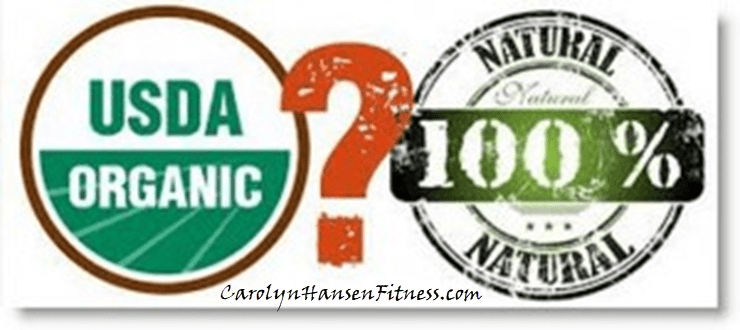
Is organic food safer or more nutritious?
Organic can be defined as the way farmers grow and process agricultural products like fruits, veggies, grains, dairy products and meat.
Organic farmers practice agriculture that is designed to further soil and water conservation and cut down pollution. They raise organic produce and meat without conventional methods to fertilize, control weeds or prevention of livestock disease.
Rather than use the traditional methods for growth and control, organic farmers might conduct advanced crop rotations and spread mulch and manure for weed control.
Any product with the label “organic” must be Department of Agriculture certified…meaning it’s produced and processed according to the Dept. of Agriculture criteria for organic foods. Products must be 95% organic to use and display this seal.
Totally Organic –
Totally organic products such as veggies, fruits, eggs or other single-ingredient foods can be labeled 100% organic and carry the Dept. of Agriculture seal.
- 100 percent organic: products must be either totally organic or made of all organic components.
- Organic: products have to be at least 95 percent organic to utilize this term. Products such as most yogurts are labeled “organic” rather than “100% organic because of the trace amounts of ingredients (5% or less) are not organic versions. The USDA organic seal assures you that any animals involved in producing your food were treated to USDA organic livestock living levels and standards. In the case of organic dairy cows, they would spend at least 120 days per calendar year grazing on pasture and never are they subjected to crowded, unsanitary feed lots.
- “Made with organic ingredients”: this label is for foods that contain at least 70% organic ingredients. The label may be displayed on these foods but the seal may not.
- Foods with less than 70% organic ingredients cannot utilize this Dept. of Agriculture seal or the word “organic” on their product labels on the front of their packaging. However, any organic ingredients may be listed as such on the ingredient list on a side panel.
Many people are confused and easily mix the two terms “natural” and “organic” when referencing the food they purchase and consume.
However, “natural” and “organic” are not exchangeable terms. You may run across different terms such as “free-range” or “hormone-free” on food labels. These are truthful descriptive terms but don’t mix them up with the term “organic”.
Natural Foods –
“Natural foods” is a much loser term in regards to how it is used in the food world...in other words, it can mean different things to different people. The scary thing about the term “natural” is that the FDA has decided it’s ok to call high-fructose corn syrup “natural”.
While the term “natural” assures you of little and is better defined by the manufacturer, area you live or where the product is carried, only foods that are raised and processed according to Department of Agriculture organic criteria may be labeled organic.
People who invest in organic foods are usually those that are concerned about consuming pesticides. Conventional growers utilize a number of different pesticides that are sprayed on their crops to protect them from mold, insects and disease. This pesticide leaves a sticky residue.
According to the USDA organic produce bears significantly fewer pesticide residues than does conventional produce.
Although research is in progress, after studying 50 years’ worth of scientific articles about the nutrient content of organic and conventional foods, a recent study concluded that organically and conventionally produced foodstuffs are alike in their nutrient content.
Organic or not, it’s a personal choice. Whatever choice you make just be sure to clean your produce thoroughly before you store it. There are methods that can be used to remove pesticides and bacteria such as soaking them for a short while in apple cider vinegar mixed with water.
If you are presently fighting off disease it might be wise to give your body a boost with 100% organic foods.
The most important thing to focus on is eating a healthy balanced nutrient rich diet.
For more information on diet, exercise and staying cancer free check out WellnessWalkeupCall.net
